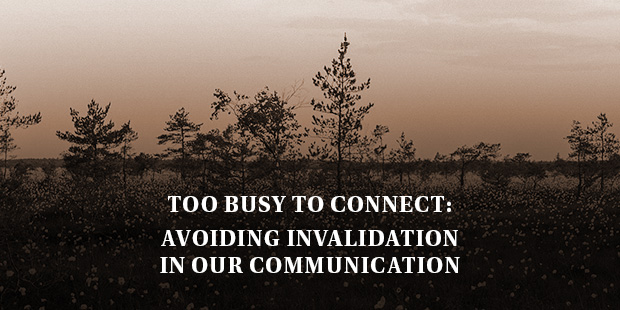
Too Busy to Connect: Avoiding Invalidation in our Communication
Do we care about talking to each other anymore, or are we settling for mostly texts, emails, tweets, and similar electronic quickies?
We often think that quick communication saves time. This is true in some cases. But relying only on cursory communication runs the risk of misunderstanding, and a lot of hoopla about “what did she mean by that e-mail?” Once those questions get started, they take on a life of their own and end up as huge time wasters, not time savers, and the intent of the communication may be lost or so badly misinterpreted that trust goes astray in the translation.
Let’s regroup and think about the advantages of face-to-face communication, what might get in the way, and types of skills that promote cooperation even in difficult instances.
Face to face communication motivated by care and concern can be so meaningful. But meaningful discourse has a lot of components, many of which are ignored—often unintentionally—no matter how many training classes are offered on the subject of communication.
What does invalidation look like? How do we invalidate each other in our conversations?
Negative comments are remembered much more than positive regard. In the adult world, we may be thicker-skinned, but we remember. There are at least 10 common ways we often invalidate others every day.
>>Maxine Kamin, president of TOUCH Consulting, Inc., develops this idea in a free resource you can download here.

Tags: Attention, Awareness, Invalidation, Maxine Kamin












